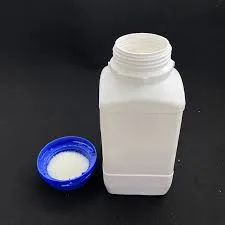Understanding WTP Chemicals Their Importance and Applications
Water Treatment Process (WTP) chemicals play a pivotal role in the management and purification of water systems across various industries. These chemicals are specifically designed to treat water, making it safe for consumption and suitable for industrial processes. The significance of WTP chemicals cannot be overstated, as they are essential in ensuring that the water quality complies with health and safety standards.
What Are WTP Chemicals?
WTP chemicals encompass a diverse range of substances used in different stages of water treatment. Their primary purpose is to eliminate contaminants, reduce pollutants, and enhance the overall quality of water. Common categories of WTP chemicals include coagulants, flocculants, disinfectants, pH adjusters, and corrosion inhibitors.
1. Coagulants These chemicals are used to aggregate smaller particles into larger clusters, making them easier to remove from water. Common coagulants include aluminum sulfate and ferric chloride. They play a crucial role in the sedimentation process, where contaminants settle at the bottom of treatment tanks.
2. Flocculants Similar to coagulants, flocculants aid in the formation of flocs, which are larger aggregates that can be easily removed. These polymers enhance the efficiency of the coagulation process and are particularly effective in treating high turbidity waters.
3. Disinfectants To ensure water safety, disinfectants such as chlorine, ozone, and ultraviolet (UV) light are employed. They effectively eliminate bacteria, viruses, and other harmful microorganisms, making drinking water safe for human consumption.
4. pH Adjusters Maintaining the correct pH level is crucial in water treatment. Chemicals like sulfuric acid or sodium hydroxide are utilized to adjust the acidity or alkalinity of the water, which can impact the effectiveness of other treatment processes.
5. Corrosion Inhibitors These chemicals protect pipes and equipment from rust and corrosion, extending their lifespan and reducing maintenance costs. They are particularly important in industrial applications where water may be exposed to metals and other aggressive substances.
The Role of WTP Chemicals in Environmental Protection
wtp chemicals

The use of WTP chemicals is vital for protecting public health and the environment. By treating wastewater before it is released back into natural water bodies, these chemicals help prevent pollution and protect aquatic ecosystems. Additionally, WTP chemicals facilitate the recycling of water, which is essential in addressing water scarcity issues in many regions.
Applications Across Industries
WTP chemicals have a wide range of applications across various sectors, including municipal water treatment, industrial processes, and agricultural practices. In municipal water treatment, they are employed to ensure safe drinking water for communities. In industrial settings, WTP chemicals help maintain water quality in cooling towers, boilers, and process water systems, which is crucial for operational efficiency.
In agriculture, WTP chemicals are used in irrigation systems to manage water quality and promote healthy crop growth. Proper treatment of irrigation water can significantly affect plant health, yield, and the overall success of farming operations.
Challenges and Future Directions
Despite their importance, the use of WTP chemicals is not without challenges. Regulatory changes, environmental concerns, and the need for sustainable practices are driving innovations in this field. The future of WTP chemicals lies in developing eco-friendly alternatives that offer effective treatment while minimizing environmental impact.
Additionally, advancements in technology, such as automated dosing systems and real-time monitoring of water quality, are helping optimize the use of these chemicals. Such innovations can improve efficiency, reduce chemical waste, and contribute to more sustainable water management practices.
Conclusion
WTP chemicals are indispensable in modern water treatment processes, ensuring the availability of safe and clean water. Their diverse applications in various industries highlight their significance in public health, environmental protection, and economic sustainability. As the global demand for clean water continues to rise, the development of more effective and eco-friendly WTP chemicals will be crucial in addressing future challenges in water management.

